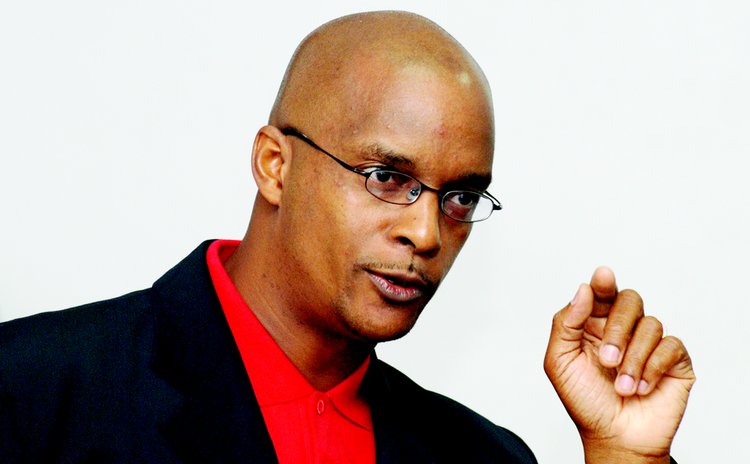Dr. Francis Severin: use social media in the classroom

Principals of secondary schools may be accused of "academic terrorism" if they fail to diligently take on their responsibility of developing the region's future generation.
That's what Dr. Francis Severin told principals and teachers who began attending the 25th Biennial Conference of the Caribbean Association of Principals of Secondary Schools (CAPSS) in Dominica on Monday July 20, 2015.
As the feature speaker, the CAPSS wanted Dr. Severin to expound on the topic "Making the Principal's Leadership relevant in the Rapidly Evolving Learning Environment" but he advised his listeners that it would be difficult to deal with that subject adequately in 25 minutes.
"What I can hope to do, however, is tease you, provoke you, stimulate you and possibly disturb or even annoy you," he said.
Dr. Severin, the Director of the University of the West Indies Open Campus Country Sites, told the principals that their external environment has changed significantly; that they worry about the increasing violence and delinquency within schools; that they are "ill-at-ease" with male underachievement; that their respectability in the community has diminished; that they may be threatened by new entrants to the teaching profession who hold impressive college credentials; and that many principals are alarmed by the changing technological environment and the expansion of social media.
"I do not urge you to NOT despair, nor should you remain intellectually numb or sluggish in the face of what appears to be insurmountable challenges", Dr. Severin said.
About one hundred secondary school principals met in Dominica last week for the conference.
They included principals and teachers from Barbados, Belize, Trinidad, St. Vincent & The Grenadines, Turks & Caicos, Jamaica, The Bahamas and Dominica. The meeting was held at the Fort Young Hotel in Roseau and ended on Friday 24 July 2015.
On issue of the use of social media and IT in education, Dr. Severin told the principals that information technology "is the new kid in town" and the systems are here to stay.
"The basic and irreducible fact is that we can no longer run away from the reality of IT's impact on education and the learning environment. If we attempt to, the world will leave us behind and, at any rate, your students will not accept it," he said.
The UWI educator said that though social media in the classroom has been a controversial issue and many education leaders have expressed "trepidation and consternation" at its use in the classroom, the ban may be counter-productive.
"In my opinion, these measures have only made the student resistance stronger. The truth is, students will be using social media so we might as well institutionalize their use in a "controlled" environment. To do otherwise is to be naïve" he said. "Train your teachers in social media literacy and encourage them to use it for the exchange of ideas and for scholarly conversations, as well as for art, social studies projects, embryonic business ventures, and so on. Teachers should stimulate their students by commencing conversations and encourage students to add or to critique constructively."




